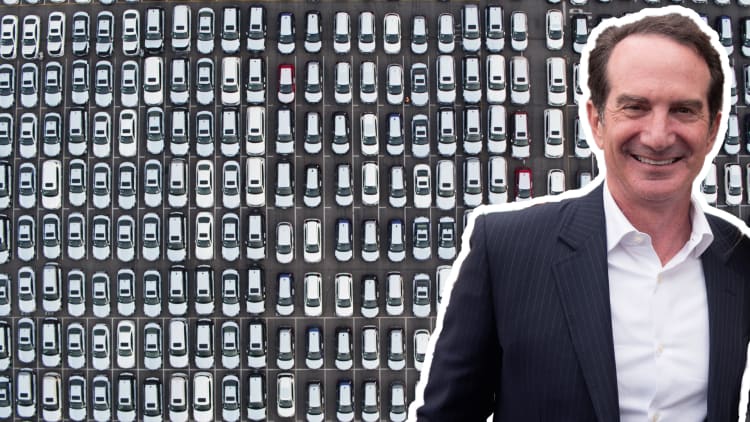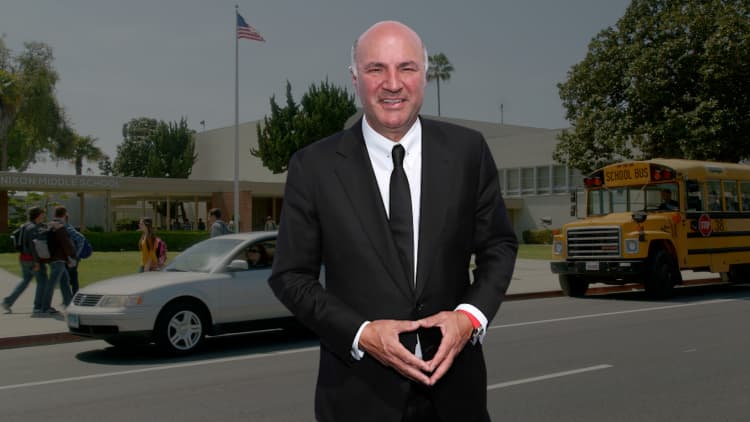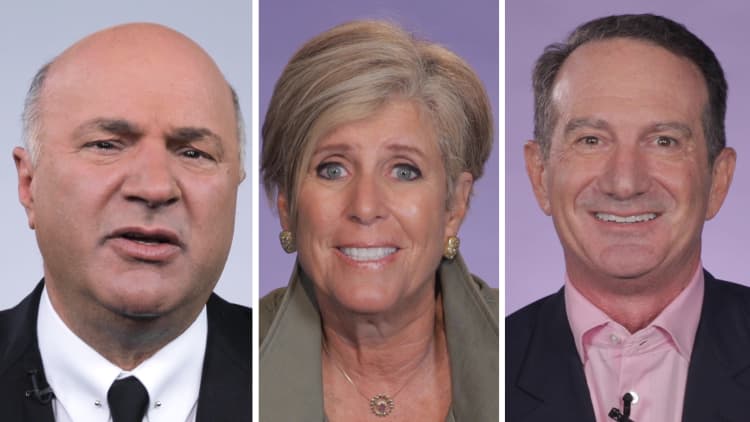That new car smell? It's just not worth the cost.
Here's what star of ABC's "Shark Tank" Kevin O'Leary, the bestselling author of "The Automatic Millionaire" David Bach, and the bestselling author of "Women and Money" Suze Orman have to say about why you shouldn't sink your savings into a brand new car.
Kevin O'Leary: When you buy a car, 'you're losing money'
Owning a car simply isn't worth the ongoing expense, argues O'Leary. "Cars cost a fortune in maintenance and insurance and just the amortization, which means as they go down in value, you're losing money," he tells CNBC Make It. "Let's say I pay $25,000 for it. Two years later, it might be worth only 12 [thousand dollars]."
Instead, O'Leary suggests taking advantage of public transportation and using ride-hailing services such as Lyft and Uber. Getting driven around is actually cheaper than owning your own vehicle in several major metros, including Chicago, Los Angeles and New York, according to a 2017 analysis from personal finance website NerdWallet.
O'Leary says your money is better spent on other financial goals, such as paying off debt and saving for the future, rather than "buying stuff you don't need," like a car.

David Bach: 'Nothing ... will waste more money than buying a new car'
While it's tempting to splurge on a new car, especially when you're young, Bach says it's the "single worst financial decision millennials will ever make."
"Nothing you will do in your lifetime, realistically, will waste more money than buying a new car," he tells CNBC Make It.
Most people have to borrow money to be able to afford the expense and, Bach asks, "Why would you borrow money to buy an asset that immediately goes down in value by 30 percent?"
Instead, he recommends looking for something that's coming off a two- to three-year lease because "that car is almost brand new and you can buy it at that 30 percent discount."
If you're still tempted, consider how much owning will cost long-term. "If you're spending $500 a month for that car, well, that's $6,000 a year, not including the car insurance or the gas. That could be two months or three months of your income," he says. "Run the numbers and then ask yourself: Do you really need a car that nice or could you buy a car that's less expensive — maybe a little older — but still looks good and still runs?"

Suze Orman: 'The second you drive that car off the lot, it depreciates'
Orman recommends buying used cars because, unlike a home, a car will never increase in value. "The second you drive that car off the lot, it depreciates, 10 percent, 20 percent," she tells CNBC Make It. "Let somebody else get that depreciation."
She also recommends you not lease. "I personally think you should never, ever ever ever, lease a car, do you hear me?" she says. When you lease, you're spending lots of money each month but, in the end, you'll have nothing concrete to show for it.
If you don't have the cash to buy a car outright, Orman says it's perfectly fine to finance one, but make sure that you won't need to make payments for longer than three years. If you have to finance it for longer than that, then "you can't afford the car that you're going to buy."
And once you get a car you can afford, she says, keep it as long as you can, ideally for a decade or more. That's what rich people do, she says: "Most people I know who are really wealthy, they keep their cars five, 10, 15, 20 years." And that's what she does herself, too.
Like this story? Subscribe to CNBC Make It on YouTube!
Don't miss: Suze Orman: Don't ever lease a car




